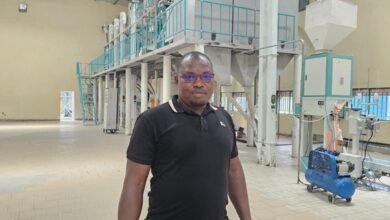Study : the economic impact of media stereotypes on Africa
A recent study reveals that Africa could lose up to $4.2 billion annually in interest payments on its loans due to biased media coverage. This research highlights the economic consequences of negative stereotypes and the urgent need to transform the representation of Africa in the media.

By the editorial staff
Media coverage of Africa is often marked by persistent stereotypes that amplify negative issues such as violence and election fraud, particularly during election periods. Compared to non-African countries facing similar political conditions, African countries suffer from disproportionate and biased media treatment. This increased focus on negative aspects results in higher sentiment and bias scores for African nations. Notably, the term « violence » is frequently associated with Africa in election-related headlines, reinforcing a negative image.
This is underscored in the report titled « The Cost of Media Bias: The Economic Impact of Negative Reporting on Africa, » which reveals that Africa could lose up to $4.2 billion annually in inflated interest payments on its loans due to persistent negative stereotypes in global media coverage. Such negative representation increases perceived risk among investors, leading to higher borrowing costs for African states, which are unjustly labeled as high-risk countries despite credit ratings comparable to their non-African counterparts. Addressing this media bias is essential for reducing borrowing costs and ensuring fair financial treatment for Africa.
A direct link between media sentiment and investor risk perception
The analysis shows that there is a direct link between media sentiment and investor risk perception, which is closely tied to sovereign credit risk. Negative media coverage increases a country’s perceived risk, leading to higher borrowing costs. Conversely, positive media sentiment is associated with a lower risk profile and reduced bond yields. However, the study finds that African countries are unjustifiably perceived as having higher risk by international investors, resulting in significantly higher credit costs compared to countries with similar political and socio-economic conditions.
Building on these key findings, the study quantified the additional costs that Africa incurs on its loans due to biased media coverage. While this study focuses on one specific aspect—how risk sentiment influences the cost of debt—it is reasonable to assume that other important drivers of development finance, such as tourism, are similarly impacted by risk sentiment shaped by global media narratives. Additionally, financial indicators such as foreign direct investment (FDI) and stock flows may also correlate with media bias, reflecting investor sentiment.
Changing media narratives
The findings of this study highlight the urgent need to change media narratives that harm Africa’s image. Fairer media coverage could unlock significant financial resources for development and growth on the continent.
Consult the study “The Cost of Media Bias: The Economic Impact of Negative Reporting on Africa »






